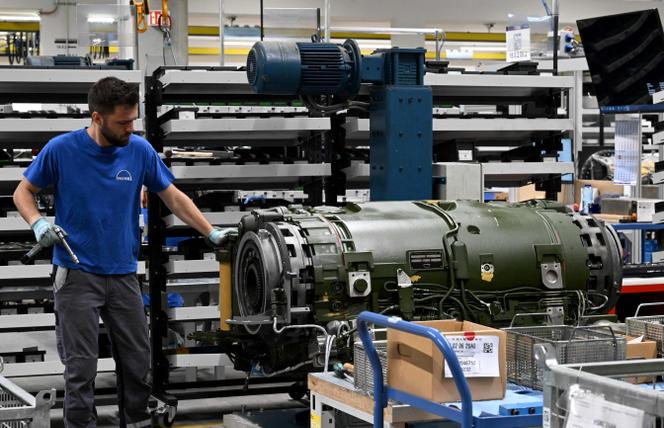


Olaf Scholz announced on the social media platform X on Wednesday, February 14, that for the first time since 1990, Germany will allocate over 2% of its GDP to defense spending this year, a milestone not reached since the Cold War's end. For the German chancellor, who spoke on Saturday at the 60th Munich Security Conference, this announcement has strong political significance. On February 27, 2022, three days after the invasion of Ukraine, Angela Merkel's successor acknowledged a "change of era" ("Zeitenwende") at the Bundestag rostrum and consequently promised that Germany would finally reach the 2% target set by NATO for its members in 2014. In 2022, military spending represented just 1.46% of German GDP.
So the commitment has been kept. But will it last? Scholz assures us that it will. In reality, though, there's no way of knowing for sure. If the 2% target is achieved this year, it will be thanks to the €100 billion special fund announced by the chancellor in his speech on February 27, 2022, and adopted three months later with the help of the votes of the conservative opposition. However, this envelope will be entirely spent by 2027-2028. For Germany to still meet the 2% target after this date, it would be necessary to either create a new special fund or increase the annual defense budget, currently €52 billion, by a further €25 to €30 billion.
The debate is already open and promises to be politically complicated: Forced to make drastic savings following a recent ruling by the Karlsruhe Constitutional Court, the government has virtually no room for maneuver. That is unless it decides to once again lift the "debt brake," the provision that limits the federal government's annual structural deficit to 0.35% and from which it can derogate in the event of an "emergency situation," as was the case after Covid-19 and the war in Ukraine. Among the Social Democrats (SPD), Scholz's party, there is a belief that the combined threat from Russia and uncertainty surrounding the future of NATO, should Donald Trump be elected US president in November, indeed represent an "emergency situation."
The fact that the debate about the financing of German defense after 2027 is already underway speaks volumes about political and military elites' concern about the Bundeswehr's ability to participate in a war on European soil. For Defense Minister Boris Pistorius, such a scenario is not out of the question. "We have to consider the possibility of Vladimir Putin attacking a NATO member one day or another," he told the daily newspaper Tagesspiegel on January 19, estimating that this could happen "within five to eight years." In the face of this threat, strengthening the Bundeswehr is a necessity. "If we don't show that we are capable of defending ourselves, Putin will have no reason to back down from an attack on NATO," said Bruno Kahl, head of the BND, Germany's foreign intelligence service, on ZDF on January 26.
You have 55% of this article left to read. The rest is for subscribers only.
